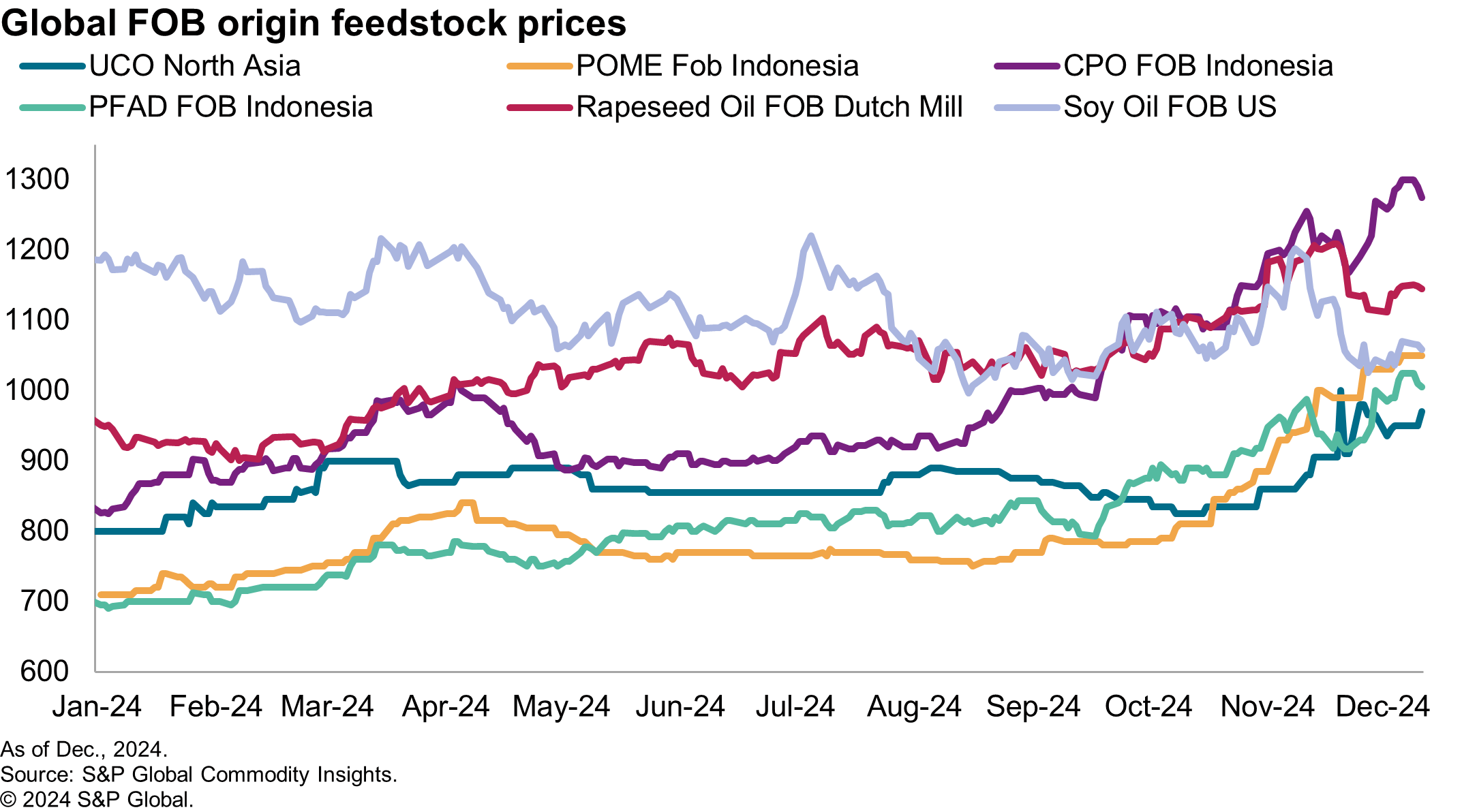Featured Topics
Featured Products
Events
S&P Global Offerings
Featured Topics
Featured Products
Events
S&P Global Offerings
Featured Topics
Featured Products
Events
S&P Global Offerings
Featured Topics
Featured Products
Events
Our Methodology
Methodology & Participation
Reference Tools
S&P Global
S&P Global Offerings
S&P Global
Our Methodology
Methodology & Participation
Reference Tools
S&P Global
S&P Global Offerings
S&P Global
Agriculture, Energy Transition, Refined Products, Maritime & Shipping, Electric Power, Biofuel, Renewables, Carbon, Diesel-Gasoil, Gasoline, Emissions, Jet Fuel, Fuel Oil, Bunker Fuel
May 08, 2025
HIGHLIGHTS
Microalgal biofuel HBx achieves net-negative emissions
HBx removes up to 5.78 mtCO2e/mt biofuel across three sites
Morocco leads with net-negative 1.48 mtCO2e/mt biofuel emissions
UK-based climate technology company HutanBio said May 8 that its HBx microalgal biofuel achieves net-negative carbon emissions, based on an independent life cycle assessment by EcoAct, an international sustainability consultancy and subsidiary of Schneider Electric.
The breakthrough marks a major step in the development of sustainable biofuels, offering an environmentally sound solution for hard-to-decarbonize sectors such as cargo shipping, heavy land transport and long-haul aviation.
The LCA, conducted according to ISO 14040:2006 and ISO 14044:2020 standards, showed that HutanBio's microalgal production process removes up to 1.48 mtCO2e for every metric ton of HBx biofuel produced.
Across the three planned production sites -- Morocco, the Middle East and Western Australia -- the LCA found that HutanBio's HBx technology not only removes carbon but also achieves a net uptake of negative 5.78 mtCO2e per metric ton of biofuel.
The assessment includes a cradle-to-gate analysis of all production stages, from raw material inputs to transportation, refining processes and waste handling.
This transparency provides stakeholders with a clear and reliable carbon accounting methodology, which is rare in the biofuels sector.

A key highlight of the LCA is the significant reduction in carbon emissions achieved through the use of renewable energy during production.
The use of renewable energy sources reduces HBx's carbon footprint by up to 5.6 times compared with conventional fossil-based energy. This renewable energy integration is critical for scaling the biofuel technology and making it commercially viable.
"We have always believed that transparency and scientific rigor are key to advancing the biofuels sector," Paul Beastall, CEO of HutanBio, said. "By following ISO standards and publishing these results, we are not just validating our own technology, but we are also setting a new standard for industry transparency, proving that it is possible to create low-carbon alternatives to fossil fuels that don't compromise the environment."
The LCA findings reveal that Morocco is the most efficient production site for HBx, as the country's strong renewable energy mix, efficient material sourcing and optimized logistics contribute to the lowest emissions across all three locations.
Morocco achieved net-negative emissions of negative 1.48 mtCO2e per metric ton of biofuel, making it the best-performing site, with significant potential for further growth and scale.
Other locations, such as the Middle East and Western Australia, showed competitive performance but had room for improvement.
In particular, Western Australia had the highest emissions per metric ton of HBx, with opportunities for further optimization in processes and energy sourcing.
The LCA also identified several emission hotspots in the production process, including the materials used in the construction of the photobioreactors, such as steel and aluminum, and emissions related to the refining process.
These insights will be critical as HutanBio continues to optimize its production methods to further reduce emissions.
Transportation logistics were also identified as significant contributors, with logistics emissions accounting for approximately 18%-19% of total emissions.
In particular, the Middle East showed higher transport-related emissions due to the longer distances traveled by trucks.
"We are committed to continuous improvement," James Ibberson, chief technical officer at HutanBio, said. "Our approach is about measuring everything, optimizing where we can, and being completely transparent. The LCA results provide us with invaluable insights that will guide our innovation and help us further optimize our processes."
Unlike traditional biofuels, which compete with agricultural land and freshwater resources, HutanBio's HBx biofuel is produced using a newly discovered marine microalgae.
This algae is cultivated in seawater on non-arable land, using HutanBio's proprietary enclosed photobioreactor technology.
The result is a high-yield, low-impact biofuel that does not compete with food crops and has the potential to significantly reduce the environmental footprint of hard-to-decarbonize transportation sectors.
"This LCA confirms the powerful environmental potential of our technology," Beastall added. "At a time when industries worldwide are under increasing pressure to decarbonize, our microalgal biofuel offers a scalable and sustainable solution that doesn't require major infrastructure changes."
HutanBio is poised to begin construction of its commercial pilot facility in the fourth quarter of 2025, with plans to scale its production in the coming years.
The company is actively seeking strategic partnerships with leaders in the transportation sector, including aviation, shipping and heavy-duty land transport, to bring its low-carbon biofuel to the market.
"This is just the beginning," Beastall said. "As we scale, the positive environmental impact of our biofuel will grow. We are looking for forward-thinking investors, partners, and policymakers to join us in making this a reality."
The findings from this comprehensive LCA set a new industry standard for transparency and sustainability in biofuels.
By publishing detailed, verified environmental performance data, HutanBio is leading the way in creating a biofuel industry that is not only science-backed but also accountable.
Stuart Lemmon, CEO of EcoAct, emphasized the importance of this milestone, saying, "HutanBio's commitment to undergoing this rigorous independent process and their remarkable results set a new benchmark for the entire biofuels industry. Their net-negative carbon profile is exactly the kind of breakthrough innovation needed to address the challenges of decarbonizing hard-to-abate sectors like aviation and shipping."
HutanBio is a climate technology company focused on transforming the future of long-distance transportation with HBx, a zero-carbon biofuel. The company harnesses the power of a new-to-science marine microalgae to produce fuel on non-arable land using seawater, CO2 and sunlight, ensuring a scalable and sustainable solution for the aviation, marine and heavy land transport sectors.

Products & Solutions
